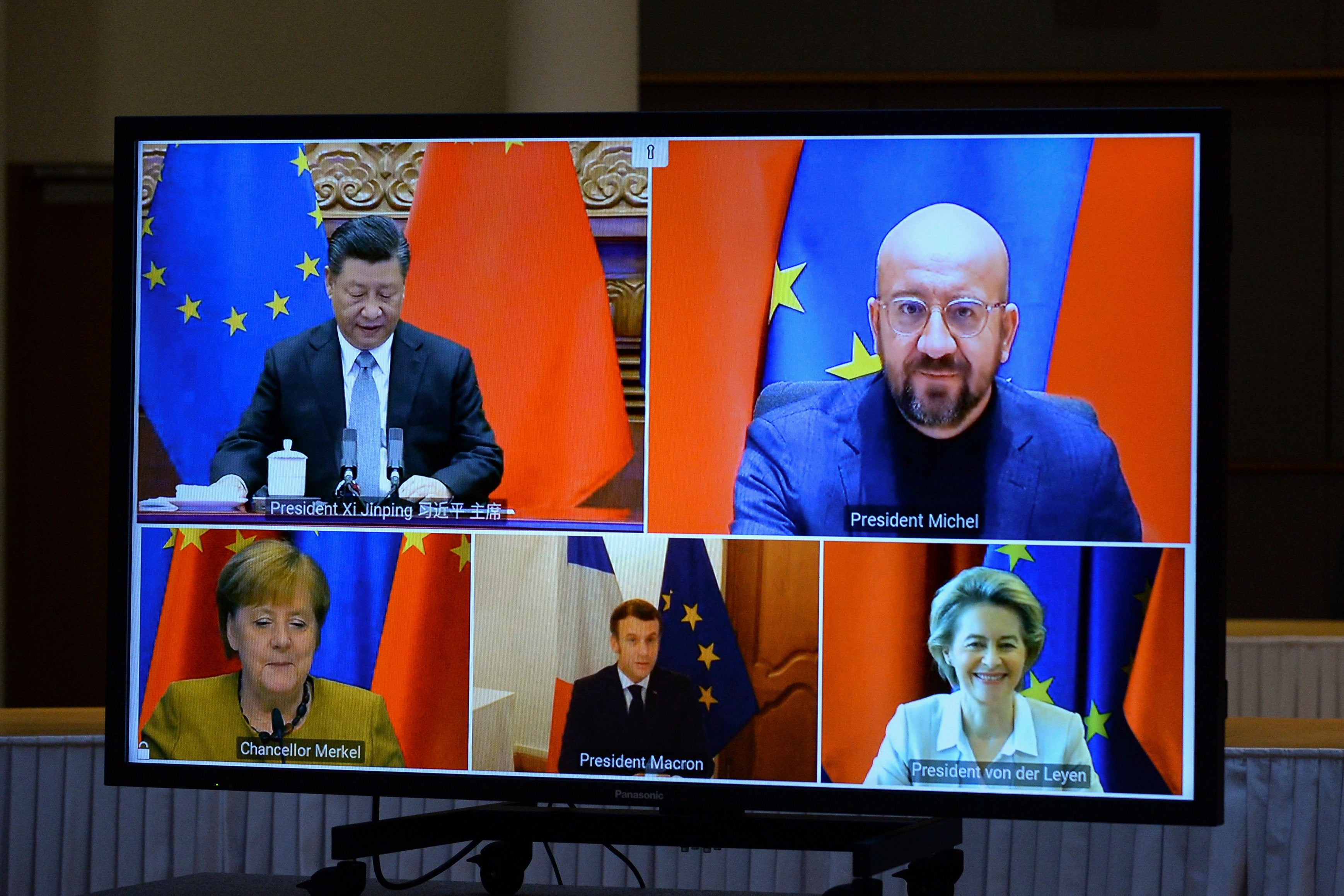EU, China leaders seal long-awaited investment deal
European Union top officials and Chinese President Xi Jinping have concluded a long-awaited business investment deal with the potential to annoy the new American administration

Your support helps us to tell the story
From reproductive rights to climate change to Big Tech, The Independent is on the ground when the story is developing. Whether it's investigating the financials of Elon Musk's pro-Trump PAC or producing our latest documentary, 'The A Word', which shines a light on the American women fighting for reproductive rights, we know how important it is to parse out the facts from the messaging.
At such a critical moment in US history, we need reporters on the ground. Your donation allows us to keep sending journalists to speak to both sides of the story.
The Independent is trusted by Americans across the entire political spectrum. And unlike many other quality news outlets, we choose not to lock Americans out of our reporting and analysis with paywalls. We believe quality journalism should be available to everyone, paid for by those who can afford it.
Your support makes all the difference.Top European Union officials and Chinese President Xi Jinping concluded a business investment deal Wednesday that will open big opportunities to European companies but has the potential to irk the new American administration.
Amid concerns about the human rights situation in China the EU said the seven-year-long negotiations were concluded in “principle" during a videoconference involving Xi, European Commission president Ursula von der Leyen and EU Council president Charles Michel.
German Chancellor Angela Merkel — whose country holds the rotating presidency of the EU — and French president Emmanuel Macron also took part in the discussions with the Chinese president, the EU said.
“We are open for business but we are attached to reciprocity, level playing field and values," von der Leyen said.
The videoconference launches a ratification process that will take several months. To enter into force, the agreement will need to be ratified by the European Parliament, and the issue of human rights could be a sticking point.
According to EU figures, China is now the bloc’s second-biggest trading partner behind the United States, and the EU is China’s biggest trading partner. China and Europe trade on average over €1 billion a day.
According to the EU, the deal was brokered after China committed to pursue ratification of the International Labor Organization’s rules on forced labor.
On Tuesday, the EU expressed concerns about “the restrictions on freedom of expression, on access to information, and intimidation and surveillance of journalists, as well as detentions, trials and sentencing of human rights defenders, lawyers, and intellectuals in China.”
The EU hopes the agreement, known as CAI, will help correct an imbalance in market access and create new investment opportunities for European companies in China by ensuring they can compete on an equal footing when operating in the country.
The 27-nation bloc said the agreement is the most ambitious that China has ever agreed with a third country and will give additional access to many areas including the electric cars and hybrid vehicles sector, as well as private hospitals, telecoms and cloud services.
But it has the potential to cause tension with the administration of U.S. President-elect Joe Biden only weeks after the EU proposed a trans-Atlantic dialogue to address “the strategic challenge presented by China’s growing international assertiveness.”
The EU, however, said the investment agreement will give the EU the same level of market access in China that the United States has and insisted that the deal will benefit other trading partners by getting China to commit to high standards of conduct.
The EU previously said the agreement, which includes provisions for settling disputes, should increase the transparency of Chinese state subsidies and make sustainable development a key element of the relationship between the EU and China.
The deal also includes clear rules against the forced transfer of technologies, a practice in which a government requires foreign investors to share their technology in exchange for market access.